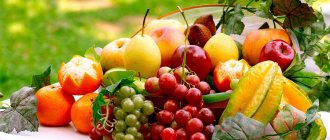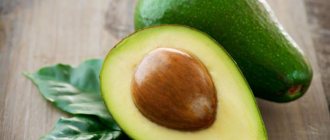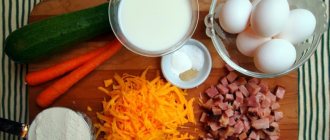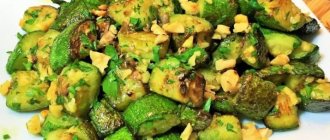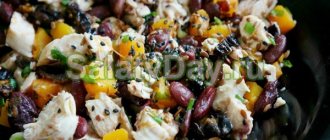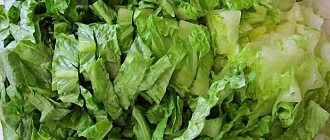This article is about frozen vegetables and how to choose them and how to prepare them.
We live in latitudes where it is not possible to eat a variety of fresh vegetables all year round. However, their benefits for humans are undeniable. In this regard, people resorted to a trick and began to freeze vegetables.
Frozen mixture
Can I eat frozen vegetables?
Eating frozen vegetables is one of the simplest and most cost-effective ways for the body to obtain important vitamins, minerals, and trace elements during the winter.
In the age of technology, we can safely say that frozen vegetables are sometimes much healthier than vegetables bought in stores. Numerous studies also speak about this.
Can you eat frozen vegetables?
The benefits and harms of frozen vegetables
Frozen vegetables should be talked about more from a positive point of view.
With modern freezing methods, vegetables retain almost all their positive properties.
Very little time passes from the moment of harvesting to freezing - this is in the interests of the producer. Otherwise, the product will lose its appearance and even when frozen, it will be clear that it is spoiled.
IMPORTANT: When buying frozen vegetables, still pay attention to the composition. In rare cases, to preserve the appearance and add brightness to vegetables, manufacturers resort to the use of food additives.
Short harvesting times for vegetables guarantee excellent preservation of products.
However, frozen vegetables can also be harmful - but only if they have been frozen two or more times. When thawing, vegetables may simply go bad.
The benefits and harms of frozen vegetables
Can vegetables make the body worse?
Vegetables can worsen the condition of the body only if they are stored and prepared or if they are not chosen correctly.
Choose all vegetables very carefully.
You definitely need to know what harm inappropriate vegetables can cause:
- If you do not properly store vegetables that you bought earlier, they may be affected by bacteria and mold fungi. Each time, provide a certain temperature for storing vegetables, and ensure the level of ventilation and humidity in the room. If you do not have suitable premises, then it is best to buy vegetables when you urgently need them.
- It is best if you eat seasonal vegetables , because they contain many useful substances.
- If vegetables are grown in greenhouse conditions, they can be overloaded with pesticides and nitrates, promoting increased growth and protection from disease.
Get a device that can measure nitrates in foods , you can use it when choosing vegetables. If you do not have such a device, then I recommend that you soak, peel, and heat treat vegetables. It will be better if you buy medium-sized vegetables - they contain less nitrates.
When you purchase vegetables grown in other countries or other regions, you need to know that they are often treated with antibacterial and various chemicals.
Thanks to this process, vegetables will be protected from premature ripening , from pathogens, etc. This increases the time frame for implementation. This is why it is very important to wash all vegetables and peel off the skins.
The most beneficial thing for the body is, of course, vegetables that are grown independently. Or buy vegetables at markets and bazaars where producers sell their products. Here the vegetables are fresh, with lots of vitamins, moisture and microelements.
Let's clarify which type of vegetables is healthier for the body? Frozen or raw .
Partly we are interested in which vegetables are healthier, boiled or raw? Now we will find out in what form it will be more beneficial to consume vegetables.
Which vegetables to choose: frozen or fresh?
If you have a choice between frozen vegetables and those that you just picked from your garden, there is no doubt that your vegetables will be much fresher and healthier than store-bought ones.
Although frozen vegetables retain almost all their positive properties, they were not grown in your garden. They were not frozen by you.
If we are talking about vegetables that you froze yourself, then they are also inferior to freshly picked ones in terms of the amount of preserved vitamins and microelements.
IMPORTANT: When vegetables are frozen, vitamin C is destroyed to the greatest extent.
However, if you take a product that has been picked by you, but has been in the refrigerator or out of it for several days or weeks, then most likely in terms of quality it will give way to a frozen product.
Vegetables in the refrigerator
It is also worth thinking about the benefits of fresh vegetables in stores and supermarkets during the winter. Most likely they will lose in the fight against frozen vegetables.
As a rule, vegetables reach the shelves in winter after having traveled a long way from distant southern countries. This says the following:
- To preserve the appearance of the product, it is picked long before ripening. When you encounter fresh vegetables on the shelves of shops and supermarkets, you can be sure that these food products have ripened on the way to their destination, or are not ripe at all
- To preserve the appearance of vegetables before long-term transportation, and sometimes during it, chemical treatment of products can be used
- During long-term storage, fresh vegetables lose vitamins and minerals
Vegetable processing
Do canned vegetables contain beneficial substances?
In many cases, canned vegetables are much healthier than those sold in supermarkets. Of course, the most beneficial substances are found in freshly picked vegetables. Fortunately, the canning process often occurs directly after vegetables are harvested, and while some nutrients may indeed be lost during the canning process or during long-term storage of vegetables, the loss is not as great as it seems.
The main disadvantage of "fresh" vegetables from the supermarket is that there can be a very long time between picking these vegetables and the time you buy them. Taking into account the fact that these vegetables are subject to constant temperature changes, not a trace remains of many beneficial properties.
Canned vegetables are useful because they retain most of the vital microelements.
Canned vegetables and salt
When wondering whether canned vegetables are healthy, people most often remember the high sodium content in such vegetables. The best option is to buy low-sodium canned vegetables, but even these vegetables may have too much salt. To make canned vegetables healthier, you can rinse them in cold water before eating. This way, you can remove the maximum amount of salt and preserve beneficial microelements.
Phytochemical activity of canned vegetables
The main argument in favor of canned vegetables is the fact that the level of phytochemical activity in them is much higher than even in freshly picked vegetables. For example, canned tomatoes contain much more lycopene than fresh or frozen tomatoes. Lycopene is the substance that makes tomatoes and red peppers red. It works as an antioxidant and cancer preventative. Canned vegetables containing this substance are really good for your health.
What types of frozen vegetables are there?
Considering that almost all existing vegetables can be frozen, you can find a huge selection of frozen vegetables and their mixtures on the shelves of shops and supermarkets.
The most common vegetables in demand among our citizens are:
- Black Eyed Peas
- Cauliflower
- Broccoli
- Polka dots
- Corn
- Eggplant
- Pepper
- Brussels sprouts
- Zucchini
- Mixtures of the above vegetables with the addition of celery, onions, carrots, etc.
Huge selection of vegetables for freezing
Personal opinion
Aziza, singer:
– I don’t consider frozen vegetables and fruits particularly healthy, but, of course, I use them sometimes. For example, my favorite winter cherry pie can only be made from frozen berries, which I always keep in the refrigerator. But it seems to me that the frozen corn and green peas had previously undergone some kind of heat treatment. Therefore, it is better to use vegetables that you prepare yourself. For example, my aunt and I freeze bell peppers for the winter, which we collect in large quantities at the dacha.
The best producers of frozen vegetables
There are a huge number of producers of frozen vegetables and mixtures on the Russian market. Leading positions are occupied by Polish manufacturers.
Among the most popular brands are the following:
- "Hortex"
- "Kholodnya Zgoda"
- "Agram"
- "Khortino"
- "Bauer"
- "4 seasons"
- "Snezhana"
- "Colors of Summer"
- "Elikom"
- "Sap"
- "World Food" etc.
It is worth noting that most often domestic producers act not as producers, but as assemblers and packagers of vegetables supplied, for example, from Poland.
Don't get too hung up on a particular brand—try out the vegetables and you'll find plenty of freezer bags you love.
Vegetables in bags
How is frozen vegetables produced?
Blast freezing is used to freeze vegetables.
Previously, freezing vegetables required placing the vegetables in the refrigerator for two to three hours. However, this is an outdated method that requires a longer time.
Blast freezing involves blowing vegetables with low temperature air streams. The air temperature is about -35°C. Twenty to thirty minutes is enough to freeze vegetables.
Advantages of blast freezing:
- Vegetables lose fewer vitamins in such a short period of time
- Ice does not crystallize
- The fabric structure of the product is not disturbed
Production of frozen vegetables
How to freeze vegetables at home?
To freeze vegetables at home you will need:
- Vegetables
- Packages and containers
- Refrigerator freezer
- A little time
To begin, before freezing vegetables you should:
- Wash the vegetables, dry them, remove the stems, cores, seeds, and, if necessary, peel and seeds.
- If necessary, cut into small pieces, divide into inflorescences, etc.
Chopped Vegetables
Tips for freezing vegetables at home:
- Cauliflower and broccoli should be divided into florets
- Carrots can be cut into slices, strips, cubes
- Peppers peeled from tails and seeds can be cut into cubes, strips, or stored as a whole. Whole peppers can be used for stuffing. It is better to store them by folding them one in one
- It is still better to freeze white cabbage in the form of rolled cabbage rolls
- Green beans should be cut into two or three parts
- Tomatoes can be frozen whole, especially cherry tomatoes, or they can be cut into slices or cubes. A good option would be to freeze tomato puree by first chopping the tomatoes and then placing the mass in ice storage molds or cups. After freezing, the puree can be removed from the mold and transferred to a bag.
- Young cucumbers are cut into any shape; they can be useful for salads
- Before freezing, eggplants should be cut into slices and sprinkled with salt to remove the bitterness. Then you should wash off the juice and blanch. Baked eggplants are also frozen
- You can make an assortment - packing a mixture of vegetables into bags to prepare your favorite dishes
- The greens are frozen after washing, drying, cutting and placing them in bags. You can freeze the greens in ice trays by placing them in compartments and pouring, for example, olive oil to make an excellent salad dressing.
The process of freezing greens
You can freeze vegetables with or without preliminary blanching.
Some experts argue that without blanching, vegetables, even at the lowest temperatures, are able to ripen and change their structure and appearance. And only bell peppers and onions can be frozen without hot processing. You should also avoid pre-cooking broccoli, which is a very fragile vegetable.
Blanch vegetables as follows:
- Place water in a saucepan and bring it to a boil. Take a saucepan large enough to fit a colander in it.
- Place pre-prepared vegetables in a colander
- Place a colander with vegetables in boiling water
- Cover the pan with a lid
- We wait the required amount of time
The time for blanching depends on the type of vegetable - it can vary from one and a half to five minutes. For example, five minutes are spent on carrots, four minutes on eggplants, and one and a half minutes on leafy vegetables. For other vegetables, two to three minutes will be enough.
Blanching vegetables
Vegetables must be folded:
- In packages. Bags are often used to store cut vegetables or briquettes pre-prepared in containers.
- In containers. Containers are used to store whole vegetables - the container will not allow the vegetable to deform
Homemade vegetable preparation
It often happens that the freezers of our refrigerators do not have enough space for a huge number of containers, but we want to freeze more vegetables for the winter. To preserve the original appearance of a whole vegetable when freezing at home, you can do this:
- Place washed and peeled vegetables in a container or on a cutting board.
- Place in the freezer compartment of the refrigerator
- After a few hours of freezing, remove the vegetables from the refrigerator.
- Place the vegetables in a bag
- And immediately send it back to the freezer
Frozen briquettes of chopped vegetables are prepared as follows:
- We cut the vegetables into small pieces, after cutting out the tails, cores, removing the seeds and, if necessary, removing the seeds and peels
- Place tightly in a small container
- Place in the freezer for several hours
- After removing the container from the refrigerator, immerse it in warm water - then the frozen briquette of vegetables will easily fall away from the walls of the container
- Place the briquette in a bag and close tightly
IMPORTANT: Air trapped in the bag, even at the lowest temperature of your freezer, will have a detrimental effect on vegetables.
Briquettes from frozen vegetables
This manipulation will help increase the space in the place where frozen food is stored.
Can a child eat frozen vegetables?
Whether or not to give frozen vegetables to your child should be decided by the parents themselves.
When properly frozen and stored, vegetables should not harm your child’s health; on the contrary, they will serve as a source of vitamins and minerals.
When choosing frozen vegetables in stores, pay attention to the quality of the product - its color, shape, packaging. It is also important to pay attention to the manufacturer.
Frozen vegetables for children
According to the advice of parents, when it comes to complementary feeding, you should initially select vegetables for yourself, try them, and only then offer them to your child - this will help avoid unpleasant incidents in the form of rashes, etc.
Frozen vegetables can be boiled, fried, or stewed. When preparing dishes for your child from them, remember that they will contain the most useful substances after boiling, especially after steaming.
IMPORTANT: Do not salt vegetables at the beginning of cooking - they will lose their nutrients faster. It is better to use salt towards the end of cooking.
Remember that with prolonged cooking, as well as with prolonged defrosting, vegetables very quickly lose their appearance - this is sometimes an important point in preparing dishes for picky little ones.
Child eats vegetables
Frozen vegetables and fruits - the cold is all over the head
It has long been known that there is no better preservative than Father Cold. It is able to preserve the best qualities of the product. But you can freeze it in different ways. What freezing methods exist and which method is better for the consumer?
The classic method of freezing is at a temperature of minus 30-40 ° C using low-temperature liquid or cold air. At the same time, the water contained in the cells does not have time to organize into large ice crystals that destroy the cell membranes. As a result, the products remain intact.
There is also a more modern method - cryogenic or shock freezing at temperatures below -60°C. Such a product is practically not inferior in nutritional value to fresh.
But even just a consumer knows that it is not so important how it was frozen, it is important that it is not defrosted during transportation, so that the product does not get into the heat. The re-frozen product is no different in appearance from the original one, but its vitamin value and usefulness are not at all the same. What should I do? Fortunately for you and me, some manufacturers put special paper indicators in the packaging of fruits. The juice of the food causes it to change color and thus warns that defrosting has occurred.
How to store frozen vegetables?
The shelf life of vegetables depends on the capabilities of your refrigerator. You should definitely pay attention to the instructions for your equipment.
The temperature and shelf life of vegetables are as follows:
- -6°C - one to two weeks
- -12°C - four to six weeks
- -18°С - up to a year
Frozen vegetables must be stored at low temperatures. They must not be allowed to thaw as this may negatively affect the quality of the product.
As mentioned earlier, you need to use bags and containers to store vegetables.
Storing frozen vegetables
Is it possible to buy frozen vegetables: tips and reviews
Recently, most opinions boil down to the fact that it is possible and necessary to buy frozen vegetables, especially in winter. Causes:
- The body receives nutrients that are so lacking at certain times of the year
- It's convenient and fast
Tips and feedback:
- Vegetables should be defrosted quickly. Important microelements disappear, light has a detrimental effect on them, and their appearance is lost.
- Do not wash frozen vegetables - water will wash away all the vitamins and ruin the taste
- It is better to cook in a small amount of water - the beneficial properties will be better preserved
- Frozen food takes half the time to cook than fresh food.
- Vegetables should be immersed in boiling water without defrosting.
- You should not store frozen vegetables for a long time - the taste of vegetables changes and the amount of vitamins decreases. 2-3 years is a lot
- You should not buy deformed packages of frozen vegetables in the store.
- When frozen once, vegetables always crumble, there are no sticky lumps
- If you buy products by weight, then you should not choose them in an ice shell
Ice-Covered
Vegetables Freezing vegetables allows us to enjoy their nutritional benefits all year round. Don't deny yourself this. Love yourself, take care of your health.
How and what to cook
Remember that frozen vegetables should not be washed. And there is no need to defrost them before cooking. The best way to get a truly healthy dish is to quickly boil the vegetables in a little water or steam them. Immerse them in boiling water while frozen and season them just before eating. You can simply season the vegetables with salt and pepper, pour over vegetable or melted butter, one sauce or another, sprinkle with grated cheese or chopped herbs.
If the dietary option of cooking vegetables is not for you, use your imagination! Frozen Brussels sprouts, for example, can be stewed with pork or chicken. Broccoli and cauliflower - roast or bake in a creamy sauce. Green beans, corn, and peas are great for preparing first courses. By the way, all the above-mentioned vegetables can be supplemented with fresh ones to give the dishes a brighter taste. Well, frozen berries and fruits can become the basis for an incredible number of desserts or drinks.

